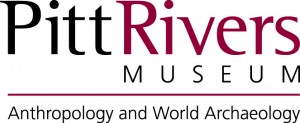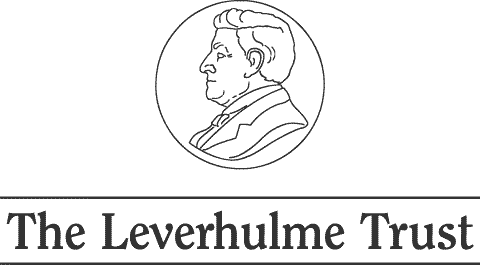Brief Account of such events of my life
The family papers of Pitt-Rivers (currently owned by Anthony Pitt-Rivers) include the following manuscript. This manuscript was transcribed for Anthony Pitt-Rivers and is included here with his permission. The family transcription was headed 'Extract from an incomplete private journal started by Lt. General Lane Fox in 1879 the year before he inherited the Rivers estate under the will of George Pitt 2nd Lord Rivers (d. 1828)'. The original transcription ends 'Note: The autobiography was abandoned at this point and the same volume contains, in the General's handwriting, a history of the Lane Fox Family with a family tree, a family tree purporting to show that the Pitts were descended from Edward III, a family tree of the Stanley Family, a manuscript copy of the entry on East Horsley from Braley's History of Surrey and of the entry on Cobham from the same source. It also contains a pasted in copy of The London Gazette of Friday June 4th 1880 which includes the grant of arms and authority to take the surname Pitt-Rivers issued by the Queen at Whitehall on 25th May':
Now that I am in my forty nineth [sic][1] year and begin to feel that I am no longer young, it occurs to me to write a brief account of such events of my life as I can remember in the hopes that it may be read with some interest by my children and their children after I am gone. (not that I have much in the way of precept or example to hand down to them nor do I suppose that there is much to be learnt from my comparatively uneventful career, but our growing knowledge of the laws of heredity gives an interest to all that relates to the physical & mental constitution & culture of our ancestors which must increase rather than diminish as years roll on. The family, meaning by that term the kindred and not merely those who inherit the name, are freely of one flesh and blood. Whether the "stirp" theory if Mr Galton [2] or the pangenesis of Darwin proves true. Whether the free will of man represents as supposed by P. Carpenter a power capable of modifying and directing, or is, as believed by Huxley merely a resultant of the natural forces within us, it is certain that each one of us contains within his person the "promise & potency" of those who follow after in blood relationship. We cannot tell when or where constitutional peculiarities may crop out or how many generations may be skipped, but we may be sure that some one or more of our descendants be they few or many, will closely resemble their congenital functions. It is often affirmed that acquired habits are not inherited, and this may be true of habits acquired during one['s] lifetime, but the influence of habits and functions exercised in the same manner by successive generations of the same family is less known, and cannot be ascertained, so long as people know as little as is usually the case of the inner family life of their ancestors. It is not those events which make most mark in the world which have most influence in the transmission of heredity qualities but rather those which are of everyday occurrence and which few persons think worthy of being remembered, still less of being recorded. Hence an autobiography, if truthfully written, may be of some scientific value to a man's offspring even tho it may in no sense be a record of stirring events or contain anything of which the family may have especial reason to be proud.
I have myself found the want of such a record. My mother had a fancy for burning every scrap of paper which had every scrap of paper which had writing on it, even my father's letters to his father written from the Peninsular, where he served with the Grenadier Guards, which I remember reading with much interest. I found after her death that she had burnt with everything else that belonged to her in the way of papers, save such as related to money business which she was always shrewd enough to preserve carefully. I know nothing therefore of the short life of my father who died when I was five years old, except what I may have heard from my mother, or picked up in conversation with those who knew him, but I have always felt great interest in hearing any anecdotes in which he was concerned and the same interest would have extended to records of any earlier members of the family had they existed, more especially when as I have already said the study of heredity comes into the matter.
I wish to pursue a different course in my own case, and that my children should at least have the power of referring back to their family history if they desire it. I do not indeed propose to make a clean bosom of all my innermost thoughts but I desire to write with as little bias as can reasonably be expected of a man when speaking of himself. I have kept no journal, not being a man of methodical habits and must rely on memory for the past years of my life, but my wife since her marriage has kept a small pocket diary to which I can refer for dates.
For the same reason that I write this, I would wish that if it could be done without inconvenience and without jarring on the feelings of those that I leave behind a post mortem examination should be made of my body and the particulars of my physical constitution recorded by a competent anatomist for the information of my descendants, more particularly the form and peculiarities of the cerebral convolutions, and I should even think it reasonable if it were practicable to preserve the skeleton for comparison with those of any of my progeny who might be similarly minded to have it done. [3]
Notes
[1] Those words italicised here were italicised in the original transcription, it is not known what it signifies.
[2] Stirp: OED defines it among other things as the 'descendants of a common ancestor', and gives the following quotation from Galton 'Contemporary Review' 'XXVII.81, I beg permission to use, in a special sense, the short word ‘stirp’,..to express the sum-total of the germs, gemmules, or whatever they may be called, which are to be found..in the newly fertilized ovum—that is, in the earliest pre-embryonic stage—from which time it receives nothing further from its parents, not even from its mother, than mere nutriment... This word ‘stirp’..is equally applicable to the contents of buds.'
[3] It is known that Pitt-Rivers' body was cremated, it is not known if a post mortem was carried out beforehand. There were rumours that Pitt-Rivers' skull had been retained and was held by the Royal College of Surgeons, but they do not have it now, and any records which might have confirmed this rumour have now been lost, see here for detail (towards end).
Copied by AP June 2013


